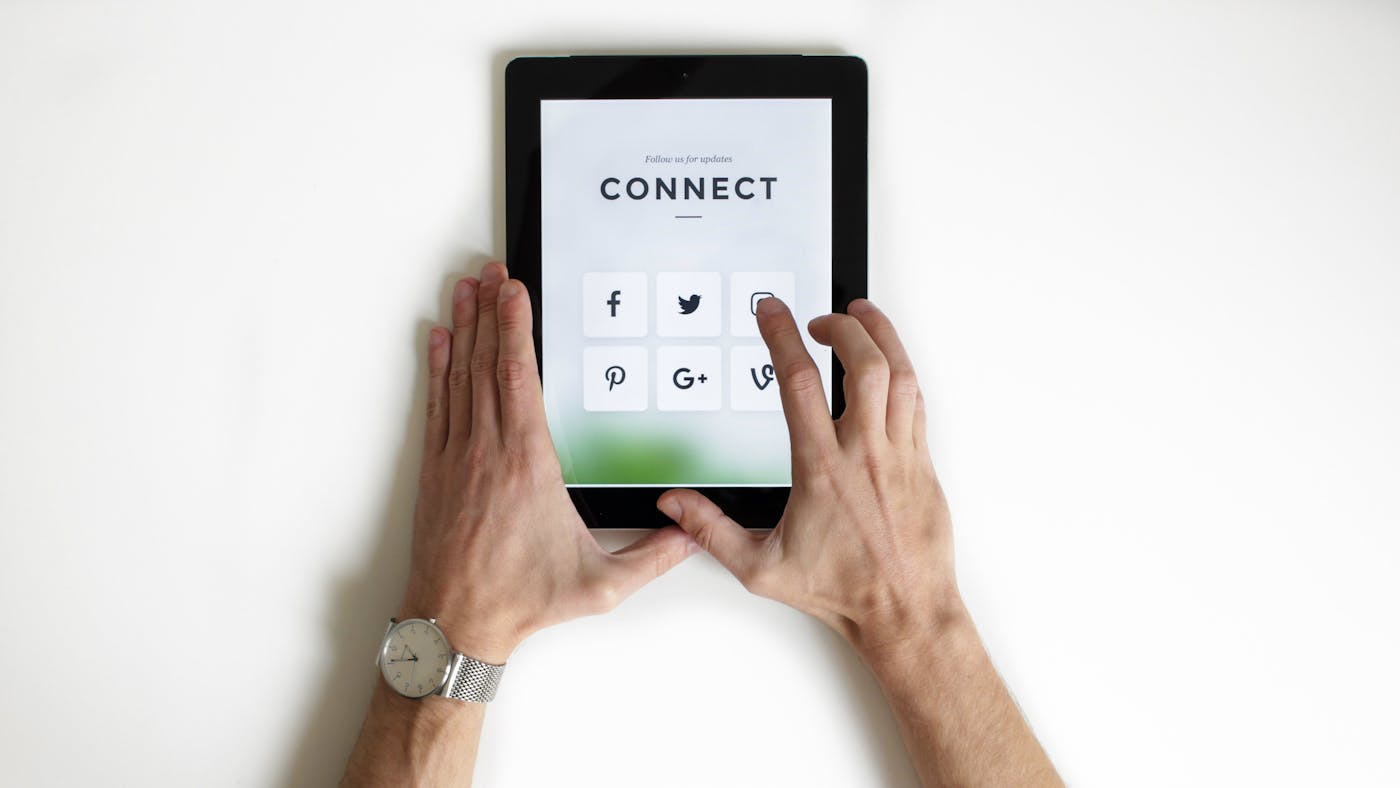9-27-18 Why We Should Escape Social Media
Why We Should Escape Social Media
(And Why We Don’t)

Yet another former Facebook exec has issued a warning about how his previous employer has conditioned us with bad habits, poisoned our civic lives, fleeced our sanity, and sabotaged our relationships. This time it’s Chamath Palihapitiya, age 41, now a venture capitalist and co-owner of the NBA’s Golden State Warriors.
Fake and Brittle
Palihapitiya explained how Facebook corrodes social discourse, recently speaking to students at Stanford Graduate School of Business. “The short-term, dopamine-driven feedback loops that we have created are destroying how society works,” he warned. “We curate our lives around this perceived sense of perfection because we get rewarded in the short term — signals, hearts, likes, thumbs-up — and we conflate that with value and we conflate it with truth. And instead what it really is, is fake brittle popularity. And that leaves you even more vacant and empty before you did it.”
But then we reach for another hit. This addiction now plagues Facebook’s entire user base of two billion people, he said. All by design. “You don’t realize it but you are being programmed,” Palihapitiya warned, disavowing the students of the idea that high intelligence and education will immunize from the plague. They don’t.
So what’s the answer?
“You must decide how much of your intellectual independence you’re willing to give,” he said. “I don’t have a good solution. My solution is: I just don’t use these tools anymore. I haven’t for years.”
Social-Media Addicts
Sounds good. Sounds simple. Just turn social media off. But of course that’s not how it works. Christians know deeper desires are at work behind the digital addictions. For all the social-media habits that plague our lives, for all the inattention we give to those around us, most of us would never seriously consider deactivating our social platforms (even Palihapitiya keeps an active Facebook account!).
“Social media is a brew of emotionally stimulating drugs we mix for ourselves.”
Social media addicts each of us — we love matching wits in Facebook comments, nesting the perfect GIF into Twitter, or spreading another throwaway selfie on Snapchat. The allure of social media is the desire to be seen, omnisciently seen, if not always affirmed, at least always put in view of others. Smartphones promise to protect us from athazagoraphobia — the fear of being forgotten. So we impulsively connect, from the moment we wake up to the moment we must surrender ourselves to sleep.
All of it conditions our digital behavior to benefit social platforms as they reach for billions of dollars in profit. Our emotions are conditioned — self-conditioned. We do it to ourselves. As one writer put it, “Each social media platform is a drug we self-prescribe and consume in order to regulate our emotional life, and we are constantly experimenting with the cocktail.”
Facing the Silence
Social media is a brew of emotionally stimulating drugs we mix for ourselves. And it means to leave social media, even for a few days or just a couple weeks, is to encounter the harsh reality that we will be un-missed on our absence, un-noticed in our silence, and even un-anticipated upon our return back. To escape social media is to taste the bitter sting of oblivion, a little hint of elderly loneliness or the midlife identity-crisis brought down now into every age demographic.
Stop attempting to be seen in social media and you vanish entirely. We dare not stop. And that’s why the first step away from social media — that first day disconnected — tastes bitter. It tastes bitter because we use the noise of media in our lives to drown out two things we’d rather not face.
Silence and the Self
In his sermon on Psalm 62:1 — “For God alone my soul waits in silence” — Dietrich Bonhoeffer took time to explain the modern fear of silence, and to show how modern man has avoided it by media, a phenomenon operating in late 1920s Germany.
First, he said, we seek new noise to avoid ourselves.
“We flee silence,” Bonhoeffer said. “We race from activity to activity to avoid having to be alone with ourselves for even a moment, to avoid having to look at ourselves in the mirror. We are bored with ourselves, and often the most desperate, wasted hours are those we are forced to spend by ourselves” (Works10:503).
“We use the noise of media in our lives to drown out the things we’d rather not face.”
We hate it. Silence inevitably forces uncomfortable truths back into our vision. Who we are, who we have become, the good and the bad and the revolting and the boring — all things about our lives, the things we would love to change, the memories and events and the scars we would never expose on social media. In the silence, nothing about us remains hidden; everything bubbles again to the surface. Taking and sharing new selfies is always easier than the fearful unknown of what will emerge if everything becomes silent.
But our fear of quiet solitude exposes something even deeper.
Silence and the Lamb
Repeatedly in Scripture, silence is a demonstration of our steadied faith, a resolved trust in the Redeemer to move and act and deliver. When the temptations and dangers increase, the godly can hush the noisy alarmists around them and reclaim silence.
- “In quietness and in trust shall be your strength” (Isaiah 30:15).
- “Be still before the Lord and wait patiently for him” (Psalm 37:7).
- “For God alone my soul waits in silence; from him comes my salvation. He alone is my rock and my salvation, my fortress; I shall not be greatly shaken” (Psalm 62:1–2).
- “For God alone, O my soul, wait in silence, for my hope is from him” (Psalm 62:5).
Silence is confidence in God.
Silence is also a divine invitation. And that’s the deeper modern fear.
“Not only are we afraid of ourselves, of discovering and unmasking ourselves,” Bonhoeffer writes, “but even more we are afraid of God, that he might disturb our aloneness and discover and unmask us, that God might draw us into partnership and do with us whatever he wants. Because we fear such unnerving, lonely encounters with God, we avoid them, avoid even the thought of God lest he suddenly get too close to us. Suddenly having to look into God’s eyes, having to be accountable before him, is too dreadful a notion; our perpetual smile might fade, things might get completely serious in a way to which we are not at all accustomed.”
Fake brittle popularity or God’s serious presence drawn close — what sounds more appealing in the digital age? So we wake up and check our phones immediately in bed.
This anxiety characterizes our entire age. We live in perpetual fear of suddenly being seized and called to task by the infinite and would rather socialize or go to the movies or theater until we are finally carried to our grave, anything rather than having to bear a single minute before God. (Works 10:503)
Every silent moment in 1928 could be interrupted by the social life or with media. Ninety years later, we can maintain the distracting noise in social + media simultaneously.
Social media is not the problem; social media is the mask over our underlying fears. We all want new breaking-news alerts or viral tweets or a new text message, because it means, for at least one more moment, we have evaded eye contact with the Savior, evaded the seriousness of what it would mean to meet him, to hear him, and to be faced with the call of God that might disrupt our comfy lives.
Silence and the Community
“Self-chosen silence is the new expression of social empowerment in the digital age. Silence is freedom.”
Bonhoeffer is not celebrating social isolation and loneliness.There is an aloneness that stems from brokenness. Bonhoeffer is applauding the intentional silence we should learn to embrace — what we now call solitude, the decision, when given opportunities for noise, to choose stillness. Self-chosen silence is the new expression of social empowerment in the digital age. Silence is freedom. And silence is a form of guarding the health of the local church.
As Bonhoeffer’s ministry developed, he would take the two truths of this early sermon (that silence forces us to face ourselves, and silence opens us to God’s voice and call), and apply them to community life.
In his book Life Together, he says we learn in community the patience and honesty necessary to be alone. While alone, we meet God and develop the authenticity necessary for communal flourishing. “Whoever cannot be alone should beware of community. Whoever cannot stand being in community should beware of being alone” (Works 5:83).
In a media-saturated world, into the ubiquity of the self in social media, we lose the discipline of solitude. We lose a sense of listening to God. God feels distant. We get emptied of the substance of divine truth we must possess ourselves before we can offer grace to our friends.
So Bonhoeffer asks his age — and asks us now — “Is the Word of God close to me as a comfort and a strength? Or do I misuse my solitude against the community, against the Word and prayer? Individuals must be aware that even their hours of being alone reverberate through the community. In their solitude they can shatter and tarnish the community or they can strengthen and sanctify it. Every act of self-discipline by a Christian is also a service to the community” (Works 5:92).
Healthy fellowship in our churches will never thrive when each member abuses social media and starves their own solitude of its serious attention.
Serious Solitude
Serious solitude in the media age can feel unnatural. It’s weird. Uncomfortable. Too serious. Bonhoeffer grants it “will feel rather funny, indeed perhaps even quite empty the first few times. Before long, however, the soul is filled; it begins to come alive and feel stronger” (10:504). He might as well have been speaking of the first few days away from social media.
“We seek new noise to avoid ourselves.”
Bonhoeffer believed it to be the special work of the Holy Spirit to lead each believer into this serious solitude, into the quiet place where our deepest needs are exposed and the greatest eternal truths can once again wash over our souls. For who alone, without the power of God himself, could desire silent seriousness in an age of incessant self-projection and self-affirmation?
By the power of the Spirit, we learn to embrace the unaccustomed seriousness of solitude, as we pray with the heart of Psalm 139,
Lord, search me, know me, and deliver me from any social-media habits that treat digital media as a cocktail of emotionally stimulating drugs I mix for myself. Cure me of this appetite to be seen by men. Kill in me this desire for endless digital acknowledgement. Draw near to me. Confront me. Comfort me. Equip me to love again. Make your presence known to me again, as I learn what it means to embrace becoming completely forgotten by this world, yet in Christ, always fully known and loved before your eyes.

Comments